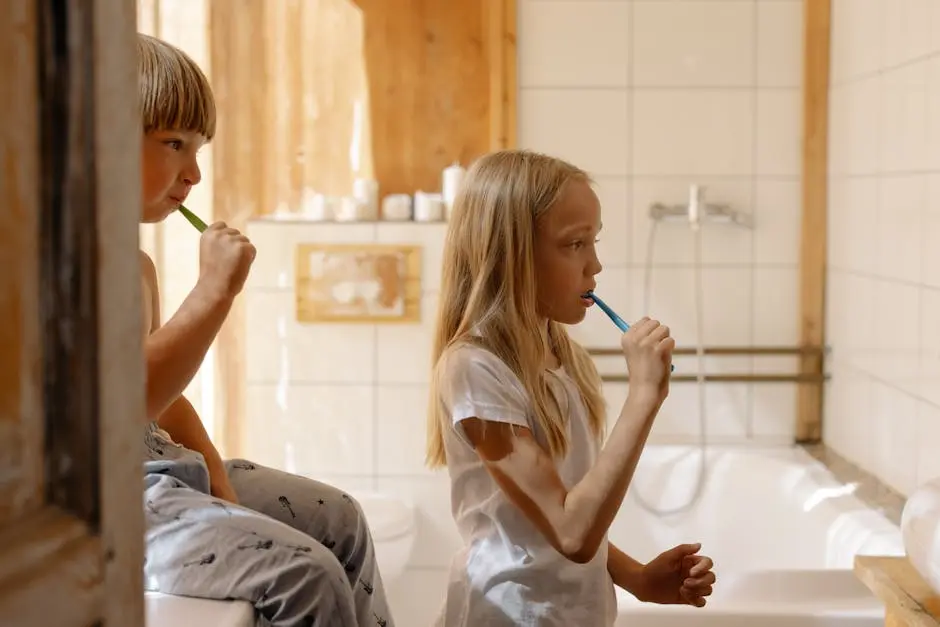Keeping your child’s teeth healthy is essential for their overall well-being and confidence. Good dental habits start early, and as parents, there are many things you can do to ensure your kids have a bright and healthy smile. In this blog, we’ll explore ten practical tips that make family dentistry a breeze for parents and kids alike!
1. Start Early with Dental Care
Introduce dental care to your kids as soon as their first teeth appear. Early habits lead to lifelong health.
It’s amazing how much of an impact early dental care can have. When infants begin to develop teeth, they also begin to develop the understanding that taking care of those teeth is important. A simple wipe-down with a damp cloth after meals can be a great first step. This not only keeps their mouths clean but also gets them used to having their teeth cared for. As they grow, transitioning them from cloths to actual toothbrushes becomes a breeze. Making it a normal part of their routine will set a solid foundation for their dental hygiene in the future.
2. Make Brushing Fun
Use colorful toothbrushes, fun toothpaste flavors, and even songs to make brushing a joyous experience for kids.
Kids are motivated by play and imagination, so why not let that work in your favor? Choosing toothbrushes that feature their favorite cartoon characters can turn brushing into a mini-celebration. Singing silly songs or playing music while they brush can create a lively atmosphere. With something as simple as a brushing chart, you could even reward them with stickers for consistent engagement—turning a daily chore into a fun game. The aim here is to create an association between oral hygiene and happiness!
3. Establish a Routine
Create a consistent daily routine for brushing and flossing to develop good habits that feel natural.
Routines help kids feel secure and confident. By setting specific times for brushing teeth—like after breakfast and just before bed—you establish clarity around what’s expected. This predictability also cultivates responsibility as they learn to manage their own hygiene habits. You might even make it a family event where everyone brushes together! This unity reinforces that dental care is important for everyone, creating a supportive environment as they grow.
4. Limit Sugary Snacks
Be mindful of your child’s diet. Reducing sugar intake can significantly lower the risk of cavities.
It’s common knowledge that sugar can lead to cavities, but finding effective strategies to limit sugary snacks can be challenging. One way to do this is by keeping healthy snacks accessible—think fresh fruits, veggies, and cheese. You can also get creative with snack times, introducing dried fruits or yogurt-covered raisins from time to time instead of chocolate or candy. Rewarding your child for selecting healthier options can further cement these habits and get them excited about making the right choices, boosting their dental health in the process!
5. Encourage Drinking Water
Water helps wash away food particles and bacteria. Encourage drinking water instead of sugary beverages.
Not only does water play a critical role in hydration, but it also aids significantly in oral health. When your child opts for water after meals, it acts as a natural rinse, helping to dislodge food particles that can lead to decay. Consider making a fun ritual out of drinking water together, maybe after every meal as a family tradition. In contrast, sugary drinks can be tempting, so keeping a balanced variety in the house—balancing flavored waters and plain water—can help foster a greater preference for the healthy choice without sacrificing fun.
6. Lead by Example
Show your children that you care about your dental health by maintaining your own oral hygiene.
Children often imitate their parents’ behaviors, making it crucial for you to prioritize your dental hygiene. When they see you brushing and flossing regularly, it sends a clear message about importance. Explain why you value oral health and involve them in conversations during your own dental care routines. Perhaps establish a mirror time—where everyone brushes together in front of the sink—creating a moment of shared learning.
7. Regular Dental Visits
Schedule biannual checkups to catch any issues early, and make these visits a positive experience.
Taking your child to the dentist regularly helps them view these appointments as routine rather than a source of anxiety. Choose a pediatric dentist with a welcoming environment, one that takes the time to explain the process to children in a friendly way. You can even turn the visit into a family outing afterward, perhaps grabbing ice cream to celebrate their bravery. By framing the experience as a positive one, you’ll reinforce their comfort with dental visits for years to come.
8. Teach Flossing Techniques
Teach your kids how to floss properly to remove plaque and food from between their teeth.
Flossing might seem tricky at first, especially for younger children, but it’s a skill worth mastering early on. Begin by demonstrating how to use floss effectively, explaining the areas between teeth that need special attention. Turning it into a game can make learning fun—perhaps racing to see who can floss their teeth the quickest while still doing it correctly! Engaging in hands-on practice can soon transform this initial challenge into a cherished habit.
9. Use Age-Appropriate Products
Choose toothpaste and mouthwash that are suitable for your child’s age to ensure safety and effectiveness.
Selecting products tailored to your child’s age is crucial to making oral care safe and effective. For instance, kids under six should use a rice-grain-sized amount of fluoride toothpaste to minimize the risk of swallowing too much. There are also unique toothbrushes designed for tiny mouths, ensuring they can easily manage cleaning their teeth. Regularly standing by them during this process will encourage better techniques and boost their confidence in their ability to care for their teeth.
10. Celebrate Dental Milestones
Celebrate achievements like cavity-free checkups or learning to brush solo to motivate and reinforce good habits.
Every milestone, however small, is a step forward in instilling confidence in your child’s ability to take care of their teeth. Celebrate those cavity-free checkups or the first time your child brushes their own teeth! Simple rewards such as a new storybook or a sticker can be a wonderful way to reinforce the importance of good dental health while making your child proud of their achievements.















